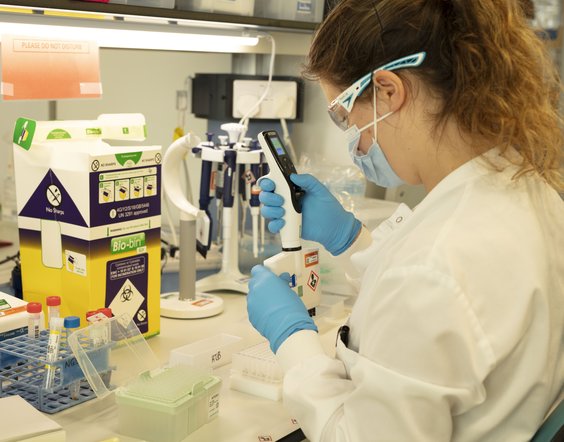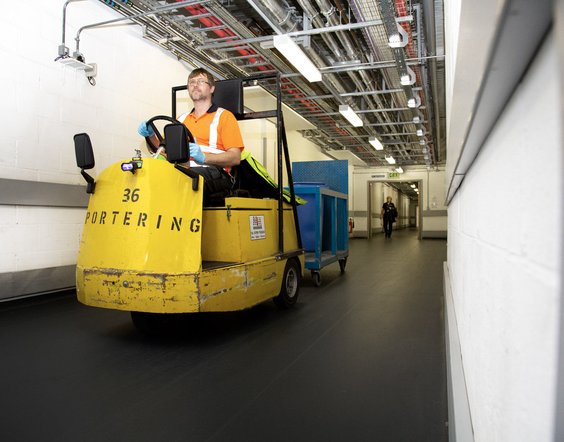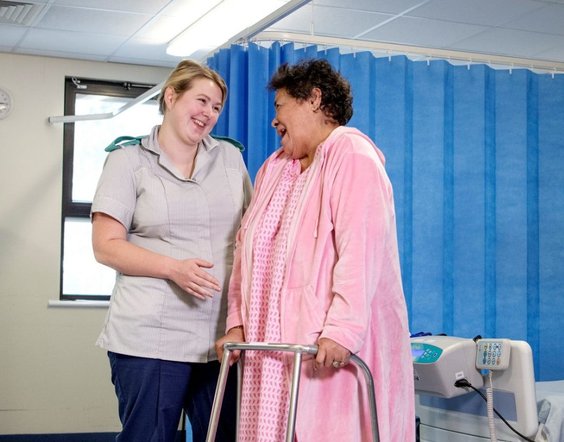Apprenticeships are work-based training programmes; they can provide routes into a variety of careers within the NHS and across all employment sectors. They are an excellent opportunity to earn, gain work experience and achieve a nationally recognised apprenticeship; some also incorporate qualifications up to degree level.
Apprenticeships enable individuals to gain experience, skills and knowledge in an apprenticeship relevant to the occupational area of work.
Different levels of apprenticeship
There are currently four levels of apprenticeships available; these are described below including their equivalent educational/academic levels
| Name | Level | Equivalent educational level |
|---|---|---|
| Name Intermediate | Level 2 | Equivalent educational level GCSE |
| Name Advanced | Level 3 | Equivalent educational level A Levels |
| Name Higher | Level 4,5,6, and 7 | Equivalent educational level Foundation degree and above |
| Name Degree | Level 6 and 7 | Equivalent educational level Bachelor or Master's degree |
Every apprenticeship level includes:
- Knowledge based qualification – also known as a Technical Certificate
- Competence based assessments and/or qualification
- Off the job training and learning interventions; depending upon the apprenticeship this may involve time away from the workplace with a training provider/college/university; it can also include development experiences in your role that contribute to the learning outcome of the occupational apprenticeship standard. This can include observing other work, shadowing, project work, reflections and time for portfolios, observation assessments with an external assessor who visits the workplace. This will contribute around 20% of the time of the apprenticeship. Some apprenticeships such as the Nursing Apprenticeship will have around 40% of the apprenticeship at university and in practice placements.
- Functional Skills. These require different levels of attainment depending upon the apprenticeship level. The functional skills includes maths and English. There are minimum requirements to access an apprenticeship as well as developing functional skills during the apprenticeship as required by the apprenticeship standard.
- There is an End Point Assessment (EPA) that ensures an apprentice can do the job they have been training for. The EPA is separate to any qualifications or assessment that the apprentice may undertake during the programme.
- Achievement of formal qualifications alongside the apprenticeship and EPA also applies for some higher level apprenticeships (e.g. science, nursing, AHPs) as well as registration with the relevant regulatory professional body
Benefits of being an apprentice at CUH
- Gain an apprenticeship and access to qualifications
- Your apprenticeship course fees are paid by CUH = no college or university debt
- Receive training and support in post
- Developing your career in one of the most vibrant, innovative and exciting NHS Trusts in the country
- Receive support and regular review sessions from our dedicated apprenticeship team you will be designated a mentor to help guide your apprenticeship
- Learn job-specific skills
- Gain exposure to the vast array of job and career opportunities at CUH and the NHS
Further Information
To find out more about the range of apprenticeships please read further information on our Apprenticeships webpage
You can contact us for any further queries about these and entry requirements: contact the Work Opportunities team on 01223-349385 cuh.apprenticeships.addenbrookes@nhs.net or the Nursing Apprenticeships team 01223-348183 cuh.nursingapprenticeship@nhs.net
If you want to find out more about the wide range of NHS careers https://www.healthcareers.nhs.uk/ (opens in a new tab)










